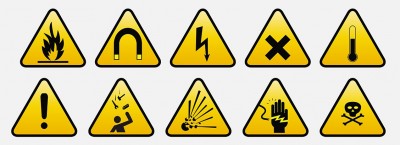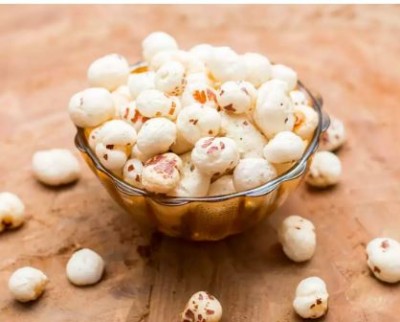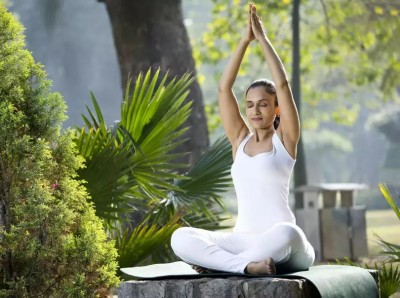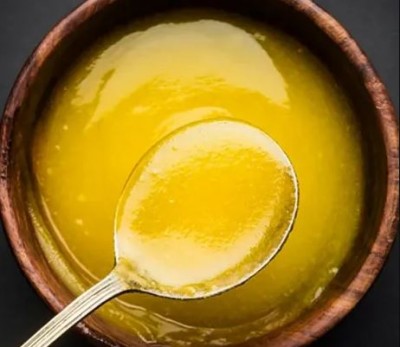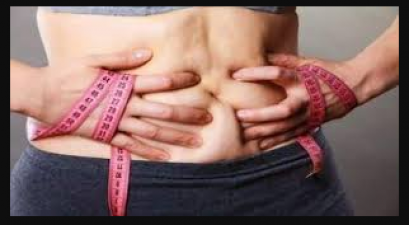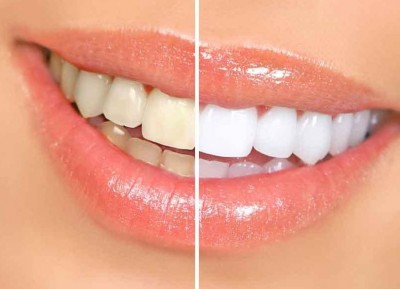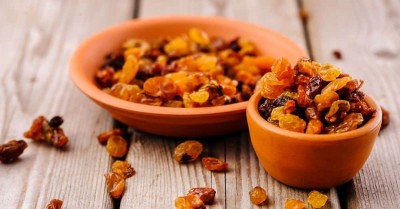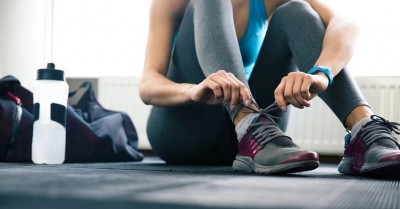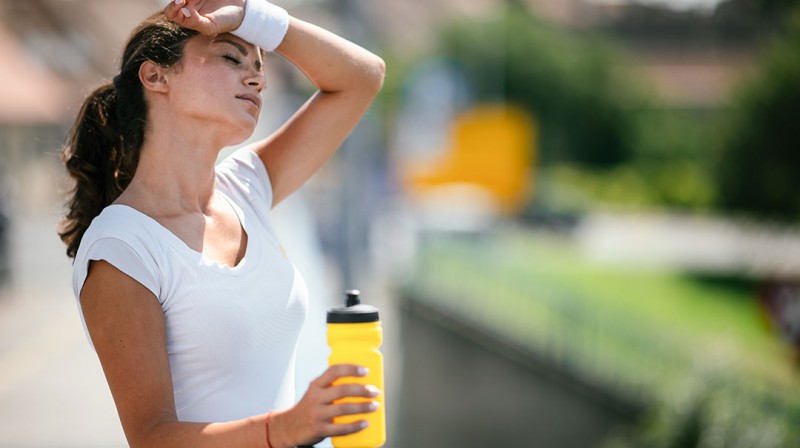
If you want to avoid heat stroke then try these four easy tips, you will get a lot of relief in the heat
Heat stroke is a severe heat-related illness that occurs when the body's temperature regulation system fails. It happens when the body is exposed to high temperatures for extended periods, often in combination with dehydration.
Symptoms of Heat Stroke
Heat stroke symptoms include high body temperature (above 103°F or 39.4°C), confusion, rapid heartbeat, nausea, and loss of consciousness. If left untreated, it can lead to serious health complications or even be fatal.
Why is Heat Stroke Dangerous?
Heat stroke can cause damage to the brain and other vital organs. It's a medical emergency that requires immediate attention to prevent long-term damage or death.
Preventing Heat Stroke: Four Easy Tips
1. Stay Hydrated
Importance of Hydration
Drinking plenty of water is crucial during hot weather. Dehydration is one of the main contributors to heat stroke because it hampers the body's ability to regulate temperature.
How Much Water Should You Drink?
Aim for at least 8-10 glasses of water a day. If you’re active or spending a lot of time outdoors, you might need more. Carry a water bottle with you and take regular sips.
Hydrating Foods
Incorporate hydrating foods like watermelon, cucumber, and oranges into your diet. These not only provide fluids but also essential nutrients.
2. Dress Appropriately
Choosing the Right Fabric
Wear loose, lightweight, and light-colored clothing. Cotton is a great choice as it allows your skin to breathe and helps sweat evaporate.
Avoid Dark Colors
Dark colors absorb more heat, making you feel hotter. Stick to whites, pastels, and other light shades to stay cool.
Protective Accessories
Don’t forget accessories like wide-brimmed hats and sunglasses. These provide shade and protect your face and eyes from the sun’s harsh rays.
3. Limit Sun Exposure
Timing is Everything
Avoid going outside during the peak heat of the day, typically between 10 a.m. and 4 p.m. Plan outdoor activities for early morning or late evening when it’s cooler.
Find Shade
If you must be outside, seek shade whenever possible. Use umbrellas or canopies when shade from trees or buildings isn't available.
Use Sunscreen
Sunscreen protects your skin from sunburn, which can affect your body’s ability to cool itself. Use a broad-spectrum SPF 30 or higher, and reapply every two hours.
4. Keep Your Environment Cool
Use Fans and Air Conditioning
Fans and air conditioners are effective in maintaining a cool indoor environment. If you don’t have air conditioning, visit public places like malls or libraries to stay cool.
Create Cross-Ventilation
Open windows on opposite sides of your home to create a cross-breeze that helps cool the area. Use window shades or curtains to block out the sun’s heat.
Cool Showers and Baths
Take cool showers or baths to lower your body temperature. A quick rinse can provide immediate relief from the heat.
Additional Tips for Heat Relief
Stay Informed
Check Weather Updates
Stay updated on the weather forecast, especially during heatwaves. Knowing what to expect helps you prepare better.
Understand Heat Index
The heat index combines air temperature and humidity to give an idea of how hot it feels. High heat index values indicate a greater risk of heat-related illnesses.
Recognize Heat-Related Illnesses
Heat Cramps
These are painful muscle cramps that occur due to loss of salt and water through sweat. Rest in a cool place and drink fluids with electrolytes.
Heat Exhaustion
Symptoms include heavy sweating, weakness, dizziness, and nausea. Move to a cooler environment, hydrate, and rest. If symptoms worsen, seek medical help.
Smart Exercise Practices
Exercise During Cooler Parts of the Day
Exercise in the early morning or late evening when temperatures are lower. Avoid strenuous activities during peak heat hours.
Hydrate Before, During, and After Exercise
Drink water before you start exercising, take regular breaks to hydrate during, and continue drinking water after your workout.
Wear Suitable Workout Gear
Opt for moisture-wicking fabrics that keep you cool and dry during exercise. Avoid heavy or tight clothing that can trap heat.
Travel Smart
Plan Ahead
When traveling, especially in hot climates, plan activities during cooler parts of the day. Stay hydrated and take frequent breaks in the shade.
Stay Cool in Vehicles
Never leave children or pets in parked cars, even for a short time. The temperature inside a car can rise rapidly, posing a severe risk of heat stroke.
Pack Heat Relief Essentials
Carry items like a water bottle, portable fan, and cooling towels when traveling. These can provide quick relief from the heat.
Cool Your Body
Use Cooling Products
Cooling towels, neck wraps, and bandanas are designed to stay cool for an extended period. They can be a great way to keep your body temperature down.
Drink Cold Beverages
Cold water, iced tea, and smoothies can help lower your body temperature from the inside. Avoid caffeinated or alcoholic drinks, which can dehydrate you.
Take Breaks in Air-Conditioned Places
Regularly take breaks in air-conditioned environments, whether it’s at home, a friend’s place, or public spaces like malls.
Long-Term Strategies for Heat Management
Home Improvements
Install Insulation
Proper insulation can keep your home cooler in the summer and warmer in the winter. This reduces the reliance on air conditioning.
Use Energy-Efficient Windows
Energy-efficient windows can block out heat, keeping your home cooler. Consider window treatments that reflect heat away from your home.
Community Support
Check on Neighbors
Look out for vulnerable neighbors, such as the elderly or those with health conditions. Ensure they have access to a cool environment and adequate hydration.
Participate in Community Programs
Many communities offer cooling centers and programs during heatwaves. Participate and encourage others to use these resources.
Personal Health
Maintain a Healthy Lifestyle
A balanced diet and regular exercise can improve your body’s ability to handle heat. Stay hydrated and avoid excessive caffeine and alcohol.
Monitor Medications
Some medications can affect your body’s response to heat. Consult your doctor about any medications you are taking and their potential side effects during hot weather. Heat stroke is a serious and potentially life-threatening condition, but with these easy tips, you can significantly reduce your risk. Stay hydrated, dress appropriately, limit sun exposure, and keep your environment cool to enjoy a safe and comfortable summer. Remember, prevention is key, and by taking these simple steps, you can beat the heat and stay healthy.
Kia Launches 'Kia Lease' Program in India, What's Special For You?
Air taxi will start soon in India, how much will the fare be? Know here
These 5 luxury vehicles are in great demand in India, their price is in crores, know their features

